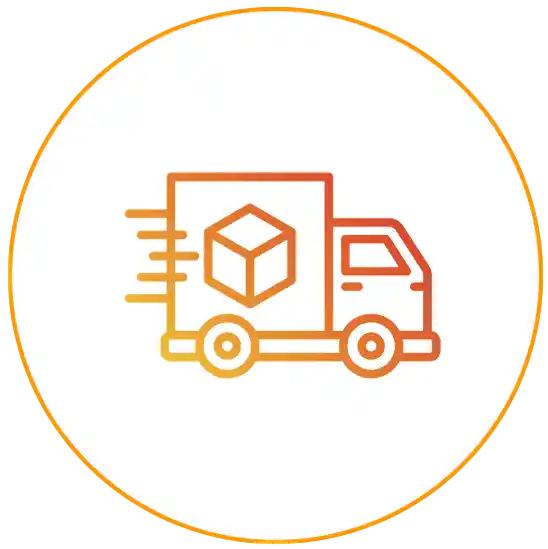Final Mile
Why Choose Final Mile?
Extra care is important during the final part of delivery, from the distribution center to the destination. Final mile logistics isn’t just about getting packages from point A to point B. It’s about making life easier, keeping customers happy, and helping shippers shine in a busy market!

We deliver solutions, not problems
Trust us to handle your last-mile delivery, the final leg of the journey from the distribution center to the end customer or business.

Your Logistics Solution
Final-mile logistics, often called the heart of last-mile delivery, handles everything from same-day and next-day deliveries to scheduled ones. This means customer needs are met effectively, making it an excellent experience for businesses and their customers.
EQUIPMENT TYPES

Dry van box trailers are enclosed semi-trailers used for transporting non-perishable goods and are the most common type of freight transport in the U.S.

A straight truck is a vehicle with one solid frame that supports both the cab and the cargo. Unlike tractor-trailers, where the cab can be separated from the trailer, straight trucks keep everything connected.

They are ideal for tasks
like delivering goods to stores, and transporting equipment, especially when
a larger semi-truck
is not necessary.

These vans are great for logistics since they can carry big and heavy items like equipment, supplies, and packages. They are ideal for businesses that prioritize moving goods over transporting passengers.
CAPACITY
Full Truck Load
Used for larger shipments that utilize the full capacity of an 18-wheeler’s trailer, generally exceeding 8,000 pounds.
Less Than Truck Load
Ideal for smaller shipments, providing a cost-effective solution and most preferable for freight transportation.
Partial Truck Load
A medium-sized
load
booked by
volume.
Expedited
Smaller shipments that require
quick delivery, handled by
companies using
smaller trucks.
When deciding between FTL (Full Truckload) and LTL (Less Than Truckload) shipping, it’s important to consider several factors, including costs, timing, and the handling requirements for your freight. Get a Quote
